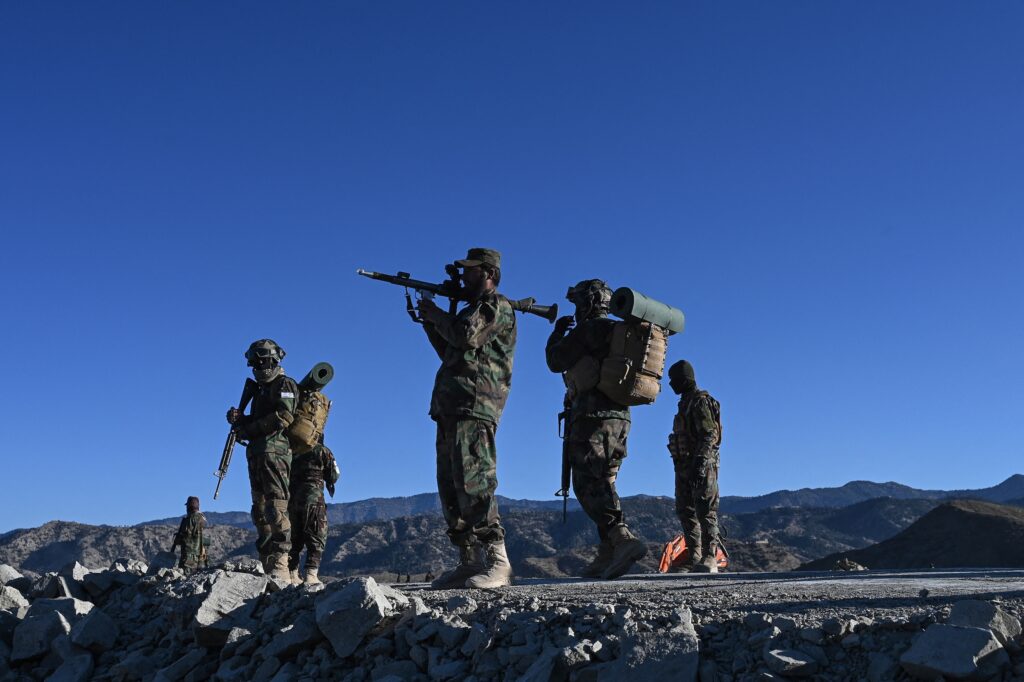Just over four years ago, the U.S.-backed government in Afghanistan rapidly collapsed, marking the end of a two-decade effort to transform the country. The final days of U.S. involvement proved bizarrely emblematic of the tragedy that had unfolded up to that point. Afghans clinging to a U.S. airplane tumbled from the sky to their deaths. A suicide bomb left 13 U.S. service members and 170 Afghans dead. A U.S. drone killed seven children in what the U.S. military ineptly mischaracterized as a “righteous strike.” Good intentions and moral high ground gave way to national embarrassment.
I served in Afghanistan as an infantry officer. Later, I helped direct a U.S. government think tank documenting the lessons of America’s intervention. Despite a wealth of analysis, we’re still not drawing the right conclusion from our longest war.
Let’s take a look at several soothing but analytically suspect platitudes that amount to conventional wisdom in Washington D.C.’s foreign policy establishment:
“The U.S. government never had a coherent strategy for what it was trying to achieve.”
It is true that U.S. strategies were often incoherent. But no strategy, however brilliant, could have achieved America’s ludicrously ambitious goal for Afghanistan: the construction of a stable, democratic, accountable, representative, and gender-sensitive Afghan state.
Consider how far U.S. aspirations for democratic governance were from reality. Every Afghan election was blighted by accusations of fraud; the last two presidential races were resolved only by last-minute, U.S.-brokered power-sharing agreements; and prominent warlords guilty of human rights abuses served in high positions. One vice president had allowed scores of Taliban prisoners to suffocate to death in shipping containers. He also reportedly had a political opponent raped with a rifle barrel—while he was in office.
On the one hand, we needed these warlords to help rout the Taliban. Afterwards, their inclusion in the post-2001 order ensured multiethnic representation in the Afghan government. On the other hand, their outlandish corruption stoked popular resentment and fueled the insurgency. They were never going to provide a stable foundation for the kind of democracy policymakers in Washington imagined.
“Short tours of duty prevented U.S. personnel from ever really knowing their areas of operation and the Afghans living in them.”
This observation is true enough, but whether any deployed American, much less an army of them, could have amassed sufficient knowledge to have made a real difference is doubtful. As one U.S. military adviser summarized, effective counterinsurgency required “a level of local knowledge that I don’t have about my hometown.”
The Taliban’s own version of a short tour—violent death by way of the U.S. killing machine—no doubt caused significant personnel disruption within the insurgency. Still, the Taliban prevailed decisively.
There is little evidence that longer tours would have changed that outcome.
“We didn’t listen enough to what Afghans wanted.”
Yes, we often operated without regard for Afghan preferences. But in other ways, we listened too much. In the early days of the war, for example, the American military quickly became a useful idiot for certain warlord allies, who took advantage of U.S. firepower to eliminate rivals and settle scores.
Years into the conflict, a different problem emerged: listening to Afghans was no better than listening to ourselves. For the last third of the war, Ashraf Ghani, a Western-educated former World Bank technocrat, served as Afghanistan’s president. An American analogue (and once an American himself), Ghani is the author of a book on how to fix failed states, a work rivaled in its hubristic grandiosity only by an insane U.S. think tank report titled “The Beginner’s Guide to Nation-Building,” coauthored by other unfortunate luminaries of the Afghanistan intellectual space.
Unsurprisingly, Ghani and his technocratic underlings in the Afghan government were in lockstep with their American counterparts, pretending that everything was fine in the weeks (and years) leading up to the demise of the U.S.-backed regime.
In our obsession with “analyzing” what went wrong in Afghanistan, we risk drawing conclusions that are satisfying but self-deceiving.
The bureaucrats and technocrats who comprise the beltway-centric analytical community I come from would have you believe that meddling in the affairs of other countries is a feature, not a bug, of U.S. foreign policy. By fixating on efficiency improvements—better strategies, more cultural knowledge—instead of on the meddling itself, they keep that narrative alive.
Don’t humor them. In the end, the most elegant lesson from Afghanistan is also the most self-evident: Violent social engineering is a dumb idea.
Dan Fisher served in Afghanistan as an infantry officer and, later, as Deputy Director of the Lessons Learned Program at the Special Inspector General for Afghanistan Reconstruction (SIGAR). The views expressed here are his own and therefore do not necessarily reflect those of SIGAR.
Read the full article here
